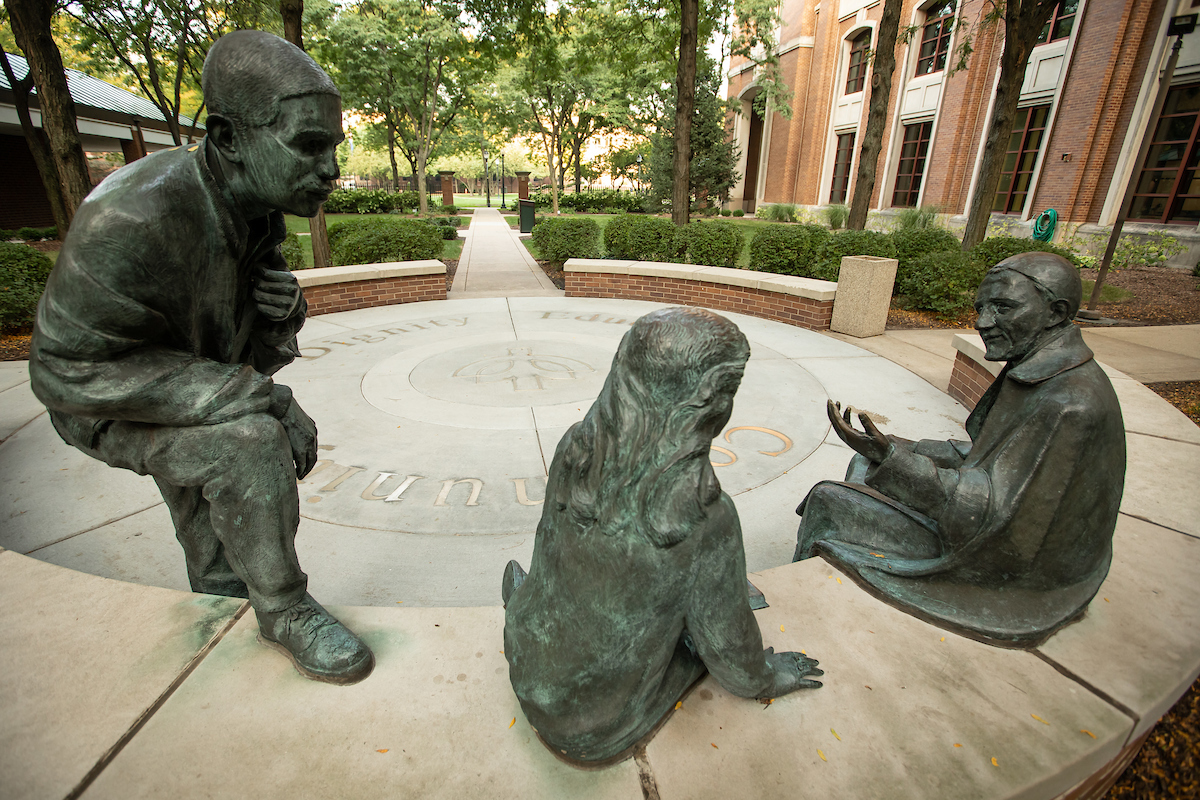 (DePaul University/Jeff Carrion)
(DePaul University/Jeff Carrion)Earlier this month, in a message to the DePaul community, DePaul President A. Gabriel Esteban noted “the ugly specter of race-based violence against people of Asian descent" has been on the rise during the pandemic.
DePaul University denounces anti-Asian and anti-Asian American bigotry. We stand together as a Catholic, Vincentian community that values human dignity. We send to the victims of racist violence and their families our deepest sympathies and condolences.
The nonprofit social organization Stop AAPI (Asian American Pacific Islander) Hate, reported from March 2020 to February 2021, it received 3,795 reports of anti-Asian hate incidents. The center, launched in response to anti-Asian racism, has received reports of attacks and abuse against Asian-Americans in 47 states and the District of Columbia.
Fear is not the only result.
Clinical-community psychologist Anne Saw, who also leads the Chicago Asian American Psychology Lab at DePaul, reports her research finds among hate incident respondents,
- 42% were currently experiencing anxiety symptoms.
- 30% were currently experiencing depression symptoms.
- 39% experienced elevation of one or more of the following race-based traumatic stress symptoms: depression, intrusion, anger, hypervigilance, physical symptoms, decreased self-esteem, and avoidance.
- 95 % percent of respondents now view the U.S. as more physically dangerous for Asian Americans.
Hate, discrimination and harassment have no place at DePaul. Bias incidents should be reported when they occur. We want to remind students that any bias incidents can be reported to the Division of Student Affairs, and staff and faculty can report incidents to the Office of Human Resources.
You also can report incidents to Stop AAPI Hate, which has a reporting portal available in English and multiple Asian languages.
We also remind students, faculty and staff that help and support are available.
General support services for students
University Counseling Services
Counselors are available for support, crisis management, consultation and community referrals. If you would like to be contacted by a counselor please call (773) 325-7779 or (312) 362-6923. Faculty and staff also may contact UCS with concerns about a student's mental health or well-being, or may share contact info for UCS with students so they can connect with UCS when they are ready.
Division of Mission and Ministry
The Division of Mission and Ministry staff can provide pastoral care and support for people of all faith or spiritual backgrounds as well as for those who do not claim a particular tradition or belief.
Please contact Diane Dardon or Amanda Thompson if you are in need of support, prayer or a listening ear.
Office of Health Promotion and Wellness
HPW can help students manage stress, anxiety, sleeplessness, and overall physical, emotional and spiritual wellness. Contact (773) 325-7219 or complete the intake form here.
Office of Multicultural Student Success
OMSS offers support for students of color, first-generation students, students who demonstrate financial need, undocumented immigrant students and students with marginalized genders and sexualities. Visit the virtual office or contact (773) 325-7325.
General support for faculty and staff
All employees have access to wellness and educational resources through DePaul's employee assistance program, offered by ComPsych GuidanceResources. The organization web ID to log-in is EAP4DPU.
Confidential counseling sessions are also available for employees, spouses and dependents, up to six free sessions per employee/spouse/dependent, per “incident." To speak with a counselor or schedule an appointment, employees may call (800) 621-4124 anytime.
DePaul values our diverse community. We will stand up against anti-Asian hate. Advancing Justice Chicago is offering free bystander trainings so people can equip themselves with the skills to do so.
These times call for solidarity. An attack on one of us is an attack on us all. Here, we care. Here, we take care of one another. We will continue to live this commitment in our values and in our actions.